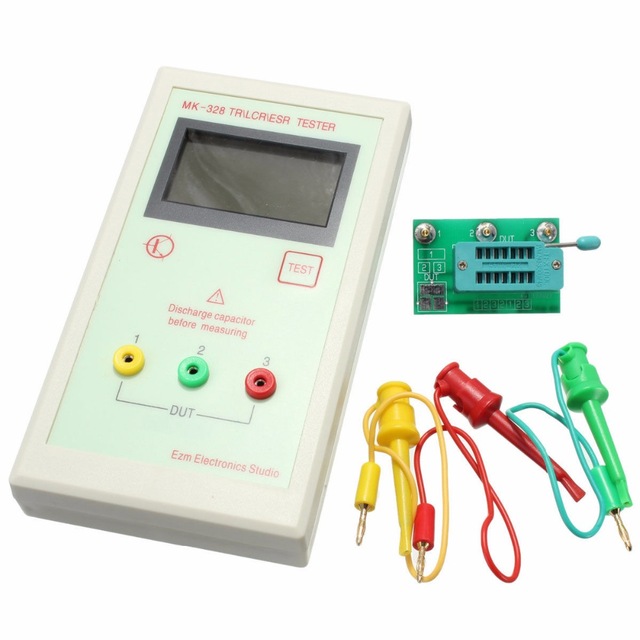Transistor Tester and Germanium
|
Hi everyone,
I bought myself a cheap MK328 LCR ESR tester and I'm very happy with it. Despite a low price, it looks like this tester is convenient and accurate (I measured nearly every component I had in the house and found out the results were correct as far as I can see).  I wanted to know if you guys are using this kinda tools for measuring and testing Germanium transistors, and how. To me, germanium components specs are changing a lot depending on temperature and if they warm when being connected to a power source. On the tester I use, testing last at least a few seconds, when transistors are in a cold state. Using my DMM I noticed big changes in time (let's say after 5 minutes) when they are connected to some source of power. You do you handle this situation and do you think I can trust what I read on the tester (I have a bunch of transistors to test and weekends are shorts... This is a time consumming activity and I admit it would be nice to read I can trust a few seconds test ;) ) Thanks ! |
|
Administrator
|
I’ve never really heard of the power supply heating up the transistor under normal conditions. When you touch the transistor to test it, your fingers will heat up the transistor. If your tester does not account for leakage, it will be dramatically less accurate with temperature changes
I just measure things at a comfortable room temperature since the transistors will primarily be used in similar conditions |
|
Thanks a lot for your answer. I will use now my tester with full confidence.
Guess I've been fooled by some test measurements I did with my DMM. I was measuring this way: 
I had in mind that measuring intensity between Collector and Emitter will give me and approximation of the leakage value. For a number of Ge trannies, I measure a very high value (currently more than 1mA). I decided to leave everything this way for a few minutes and see what happens. And, to my surprise, the measured value slowly decreased to a more acceptable range. As my knowledge in electronics is pretty limited, I conclude that connecting a power supply, temperature or something had an effect on the measurement. In doubt I decided to order this testerwhich I trust now better than my first approach. Thanks again ! |
|
Anyway :
Tester off. GT404B (Ge-NPN) connected to the tester. press on test : hfe = 79.3 / leakage (Iceo) = 170 after 10 seconds : press on test : hfe = 80.4 / leakage (Iceo) = 160 after 10 seconds : press on test : hfe = 81.8 / leakage (Iceo) = 150 after 10 seconds : press on test : hfe = 84.8 / leakage (Iceo) = 150 after 10 seconds : press on test : hfe = 86.8 / leakage (Iceo) = 150 To me, this one is OK, leakage is fairly reasonable, even great and HFe is perfect for my project. Still confused by the variations in time, but I guess accuracy is largely sufficient for what I'm doing (sorting a bunch of trannies in 3 bags : leakage < 300, leakage < 500 and leakage > 500). Meanwhile, I plan to let my circuit warm up a little bit (5 to 10 minutes) when biasing, I think this is the point. Thanks for your help. |
|
This is not the best way to measure your germaniums at all IMO, you’d be better off to use a breadboard and just set up the rg keen method which takes all of a few seconds. Or there’s a Vero layout for it as welL
Exodus Effects
|
«
Return to Open Chat
|
1 view|%1 views
| Free forum by Nabble | Edit this page |

